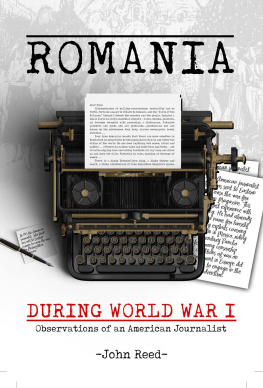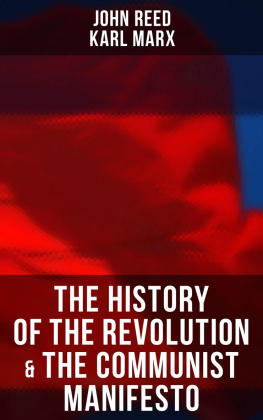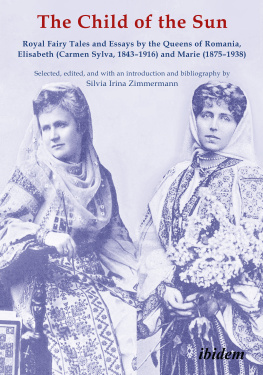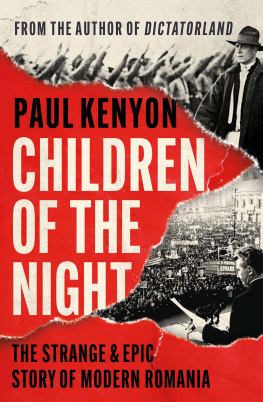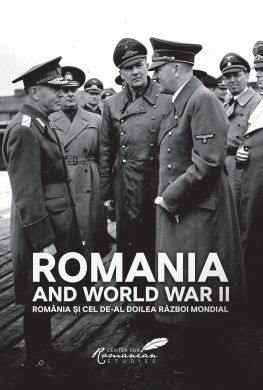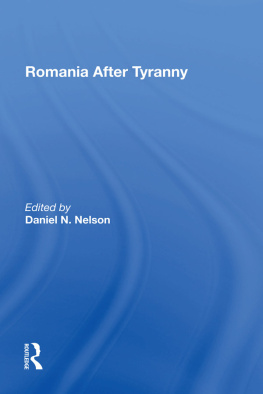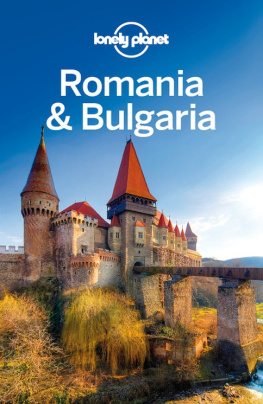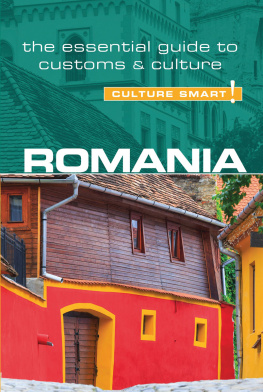Romania During World War I
observations of an American journalist
John Reed
Romania During World War I
Observations of an American journalist
Edited, with an Introduction by A.K. Brackob

Center for Romanian Studies
Las Vegas Oxford Palm Beach
P ublished in the United States of America by
Histria Books
7181 N. Hualapai Way, Ste. 130-86
Las Vegas, NV 89166 USA
HistriaBooks.com
T he Center for Romanian Studies is an imprint of Histria Books. Titles published under the imprints of Histria Books are distributed worldwide.
A ll rights reserved . No part of this book may be reprinted or reproduced or utilized in any form or by any electronic, mechanical or other means, now known or hereafter invented, including photocopying and recording, or in any information storage or retrieval system, without the permission in writing from the Publisher.
Library of Congress Control Number: 2018935325
ISBN 978-1-59211-002-5 (paperback)
ISBN 978-1-59211-006-3 (hardback)
ISBN 978-1-59211-128-2 (eBook)
2018 By Histria LLC
All Rights Reserved
Table of Contents
I ntroduction JOHN REED IN ROMANIA
RUMANIA IN DIFFICULTIES*
THE RIGHTS OF SMALL NATIONS*
ROUMANIAN SOLDIER FINDS HIS WAY FROM RUSSIAN FRONT TO AMERICA*
LAST DAYS WITH JOHN REED
Suggested Reading
Introduction
JOHN REED IN ROMANIA
I n 1915, American journalist John Reed travelled to Eastern Europe to cover the World War for Metropolitan Magazine . He had already established a name for himself through his vivid first-hand descriptions of the revolution in Mexico, in which he recounted his daring exploits while riding along with the legendary Pancho Villa. But Jack Reed found this new war to be far less romantic affair. Strong censorship and the conditions of war on the eastern front in Europe did not permit him to engage in the same sort of adventures he had experienced in Mexico. This was anathema to someone imbued with heroic ideals and a rebel spirit. Reed expressed his frustration with the situation when writing to his friend and former professor Charles Copeland:
Dear Cope:
Circumstances of mailing-convenience, neutrality and so forth, force me always to return to Romania and the Paris of the Balkans, though I detest the country and the people.
Imagine a small Paris in every essential respect cafes, kiosks, pissoirs, an Academy occupied with producing a dictionary, Futurist painters and poets who are pederasts...politicians who are known by the mstresses they keep, craven newspapers, bawdy weeklies....
Your true Romanian boasts that there are more cocottes in Bucharest in proportion to the population than in any other two cities of the world. No one does anything but screw, drink and gabble....
Officers in salmon-pink and baby-blue uniforms...sit at cafes sipping ices and eating tartlets all day long and drive up and down the Calea Victoriei in cabs, winking at throngs of women.... There is a dinky Hohenzollern king, a dinky throne and court, a dinky aristocracy of fake Byzantine Emperors spawn. Everybody is crooked... It reeks with millionaires, grown rich by hogging the oil wells or by the absentee ownership of vast lands where the peasants sweat out their lives for a franc a day....
If I ever saw a place ripe for revolution, this country is ripe. The peasants are a very fine and poetic people, but they are cowed.
I hate old Europe more every day. Americas the place. [1]
Reeds socialist convictions partly explain his disgust with the bourgeois Romanian society he encountered in Bucharest. Although seemingly an unlikely candidate to become a radical leader, the Harvard educated journalist emerged as one of the leading revolutionaries of his day. Born into an upper middle-class family in Portland, Oregon on October 20, 1887, John Reed attended private schools in New Jersey before entering Harvard University in 1906. It was at Harvard where Reed first met Copeland who he would write stimulated me to find color and strength and beauty in books and in the world and to express it. [2]
His radicalism began after he graduated from Harvard and became a journalist in New York. There he became the companion of the wealthy socialite Mabel Dodge who introduced him to the leader of the I.W.W. (Industrial Workers of the World), William D. Haywood. As a result of this meeting, Reed covered the famous silk workers strike in Patterson, New Jersey where he was arrested for siding with striking workers. A year later, in November, 1913, he was sent to cover the revolution in Mexico for Metropolitan Magazine . His reports from Mexico, where he accompanied the rebel army of Pancho Villa, won him praise in America, placing him among the leading journalists of his generation. As Bertram Wolfe noted: His reports overflow with life and movement: simple, savage men, capricious cruelty, warm comradeship, splashes of color, bits of song, fragments of social and political dreams, personal peril, gay humor, reckless daring. [3] Reeds innate talent for description made his readers feel the events he recounted. His articles, published in a volume later that same year under the title, Insurgent Mexico , cemented his reputation as a war correspondent.
While his romanticism, daring, and talent as a writer won him accolades, his experiences with the peasant armies of Pancho Villa further strengthened his growing socialist convictions. It must be remembered that for intellectuals of this generation, which had not yet experienced the atrocities that would be committed in its name, the ideals of socialism held a romantic attraction, perhaps as they do today for many who no longer have a historical sense of the tragedy of collectivism. In a world filled with poverty and injustice and overcome with a sense of stagnation, the dream of a socialist society attracted many followers among them the American journalist John Reed. In many ways, he is a representative figure of his generation a generation searching for its identity, famously referred to by Ernest Hemingway, quoting Gertrude Stein, as the lost generation. His former classmate at Harvard, Walter Lippman, described him best when he wrote in The New Republic in 1914:
He is many men at once, and those who have tried to bank on some phase of him, to regard him as a writer, a correspondent, a poet, a revolutionist, or a lover, lose him. There is no line between the play of his fancy and his responsibility to fact; he is for the time the person he imagines himself to be.
Reeds personal opposition to the war which he saw as a struggle between capitalist interests did not prevent him from traveling to Europe to cover the war on the Eastern front for Metropolitan Magazine . A romantic at heart, Reed yearned for adventure and the war, he thought, opened worlds of possibility just as it had in Mexico. It was during this journey that he first came to Romania. His observations on the situation of the country in 1915, a year before its entry into the war on the side of the allies, are those of a radical American journalist, disgusted by the bourgeois society he observed in Bucharest. It must be remembered that while Reeds experiences in Romania were mainly limited to the capital city and the surrounding area, he also travelled in the Hapsburg lands and some of his observations, coming from a man who displayed no particular sympathy for the Romanian people, are especially interesting. For example, when discussing the question of Transylvania, Reed writes:
Next page
